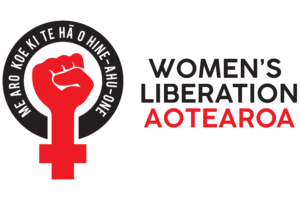The missing sense and consensus in the NZ Census
By: Karolyn
05 March 2023
The sex and gender muddle
The gender and sexuality questions in the NZ 2023 census are a bit of a muddle. Some of the definitions provided by the NZ Census and Statistics NZ departments add to the confusion. This makes it difficult, if not impossible, to answer the questions truthfully. It’s causing concern for many feminists and LGB people who understand the significance of material reality, science, and biology.
In completing the 2023 NZ Census, many of us are in a dilemma as to what to do about the sex and gender questions. If we don’t agree that we all have a gender identity, we are supposed to select between the incorrect use of the terms for the two human sexes, ‘male’ and ‘female’, or tick ‘another gender’. We could select ‘another gender’ then write ‘None’ (Stats NZ nonsensically categorises ‘None’ as ‘another gender’ – work that one out?). If we decline and don’t answer the gender question, a gender will be selected for us against our wishes. Statistics New Zealand are most likely to select the male/female gender category based on our answer to the birth sex question, implying they think we are ‘cisgender’, an ideological term many of us reject. There should have been way more public discussion of the issues before the standards were produced.
Statistics NZ are likely gathering unreliable and invalid data as any people could be misled into believing the gender question is solely about sex, and not understand that it includes gender identity. It is unfortunate that in recent decades large numbers of people in positions of authority have used the term ‘gender’ to mean the same as ‘sex’. If people completing this year’s NZ census do understand ‘gender’ includes trans people’s self-identities, they might not understand that some transwomen and transmen never medically or surgically transition. Some trans identified people retain the fully intact reproductive system of their sex.
The Gender question is especially muddled and problematic as it is a priority 1 question (Census 2023: Final Report), and the default category for data collection and analysis. That means it is core to the census. It will be subjected to stronger data verification than those questions of lower priority, such as religion (priority 3) and sexuality (priority 3). People have the “Prefer not to answer” option for these two priority 3 questions, but that is not available for the gender question. The sexuality question has also been over-written by gender identity ideology, including sexual identity with sexual orientation. The result is that men who self-identify as women (transwomen), may also identify themselves as lesbians, and women can identify as gay men.
Statistics NZ has a strange and unscientific definition, stating that sex can change in the course of an individual’s lifetime. They also confusingly use the terms ‘male’ and ‘female’ to classify people both by gender and sex at birth. This means that sex, which does not change throughout a person’s life, is being collapsed into the Census’s gender question along with subjective self-identities that may be at odds with a person’s anatomical sex. Humans can only have a male or female reproductive system. There are no other sexes.
The differences between male and female anatomies have significant impacts on a variety of activities and behaviours beyond those related to making babies. For instance, males are noticeably stronger, and faster than women, with severe consequences for male violence against women, as well as in contact sports. Men have stronger bones and muscles, plus some different muscular and bone formations. Women have wider pelvises than men. The slim-line ones of males result in the ability to run faster due to the angle created at the joint where the pelvis and top of the leg meet.
We still lack reliable statistics on how gender and or sex nonconforming people are disadvantaged. There is not evidence to show that, for instance, trans identified males (AKA transwomen) are disadvantaged in the same ways as women.
A better approach to achieving more accurate and useful outcomes in data gathering and policy development would be to reinstate sex as the default category. Sex is a material reality that is the basis of an objective, reliable and scientifically stable way to categorise individuals. Gender and gender identity are more slippery and oppressive concepts, that are based on regressive sex-based stereotypes.
References:
Statistics New Zealand, Data Standard for gender, sex, and variations of sex characteristics, 21 April 2021. https://www.stats.govt.nz/methods/data-standard-for-gender-sex-and-variations-of-sex-characteristics/
2023 Census | Aotearoa New Zealand NZ | 7 March 23, Tweet 23 February 2023https://twitter.com/2023Census/status/1628613016454397952
Statistics New Zealand, 2023 Census first to collect gender and sexual identity from everyone in Aotearoa New Zealand,19 October 2021. https://www.stats.govt.nz/news/2023-census-first-to-collect-gender-and-sexual-identity-from-everyone-in-aotearoa-new-zealand


Leave a Reply
Want to join the discussion?Feel free to contribute!